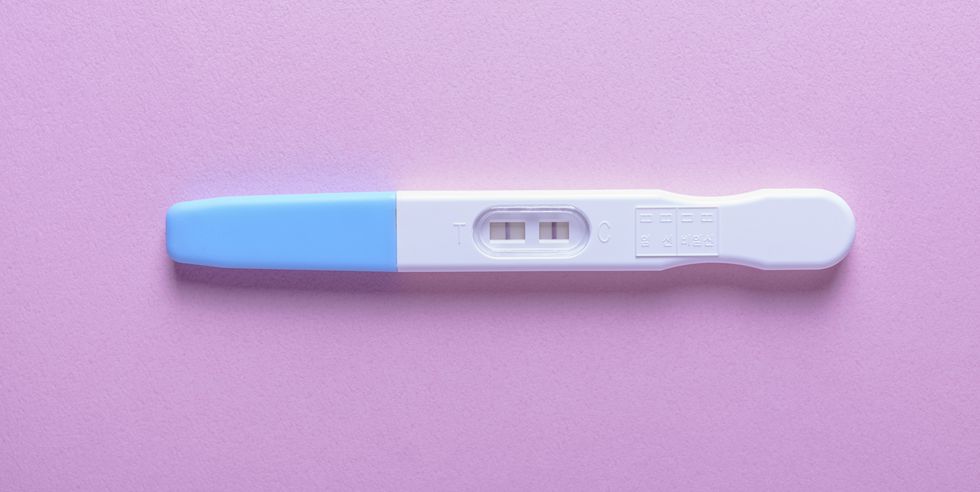When you’re trying to conceive, the waiting period between when you ovulate and when your period is due can seem endless. And, while you can take a pregnancy test at some point, there’s a set period of time where it’s just too early to know.
Still, it’s completely understandable that you’d want to know if you’re pregnant ASAP. Luckily, there are a few signs that could clue you in. Every woman is different, making it tough to say for sure what your early pregnancy signs may be, but there are some things that tip you off that you may have a bun in the oven.
Pregnancy Symptom #1: You’re peeing more than usual
During the first trimester of pregnancy, a woman’s blood volume increases and her kidneys have to make excess fluid that ends up in your bladder, the Mayo Clinic says. As a result, you have to pee more than usual. Increasing levels of the hormone progesterone during this time might also make you feel like you have to go to the bathroom more often, says Jonathan Schaffir, MD, an ob/gyn at the Ohio State University Wexner Medical Center.
Pregnancy Symptom #2: Your breasts are tender
This is also due to progesterone, Dr. Schaffir says. The hormone sparks the growth of mammary glands in the breast. The pain or tenderness you may feel is from those glands swelling up.
Pregnancy Symptom #3: You’re wiped out
Most women feel tired at some point in their pregnancy, but the reason behind it isn’t totally understood. It could be due to the fact that growing a little human is tough on your body, or the increase in blood volume, or the fact that it’s tough to get a good night’s sleep when you wake up during the night to pee, says Christine Greves, MD, an ob/gyn at the Winnie Palmer Hospital for Women and Babies. “Sometimes, an overwhelming feeling of fatigue is one of the earliest signs of pregnancy,” she adds. (If it turns out you’re not expecting, mention extreme fatigue to your doctor—feeling tired all the time is a symptom of other health issues.)
Pregnancy Symptom #4: You’re nauseous
When you’re pregnant, your body produces a hormone called human chorionic gonadotropin (HCG), which continues to rise during the early stages of your pregnancy, Dr. Greves says. This hormone usually makes women feel nauseous—but not for long. “Since the level of this hormone tops out at about eight to 10 weeks of gestation, this is when most women have the worst nausea before it starts to improve,” Dr. Schaffir says
Pregnancy Symptom #5: You’re not pooping as much as usual
The hormone progesterone relaxes smooth muscles in your body, including the ones in your gut that move food along in your intestinal tract, Dr. Schaffir explains. “Since the time it takes for food to get from your mouth to your rectum is increased, more water is absorbed and stool becomes harder to pass,” he says.
Pregnancy Symptom #6: You suddenly have food aversions
Food aversions are a weird side effect of pregnancy that make you nauseous or dislike foods that you’d normally eat otherwise—especially if they’re flavorful. There’s no scientific reason why this happens to a lot of women during pregnancy, but it could be that it helps women avoid foods that could be dangerous for the pregnancy. “Since blander foods are less likely to have chemicals that could affect pregnancy, a sensitivity to strong tastes and odors could prevent exposure to such chemicals,” Dr. Schaffir says. Still, every woman’s aversions are different, so it’s really hard to say what’s behind this.
Don’t get discouraged if you don’t have any of these symptoms—it doesn’t mean you’re not pregnant. “By far the most common first sign is being late for a period,” Dr. Schaffir says. So, try to wait things out and take a test when you miss a period—it’s really the most reliable sign there is.












